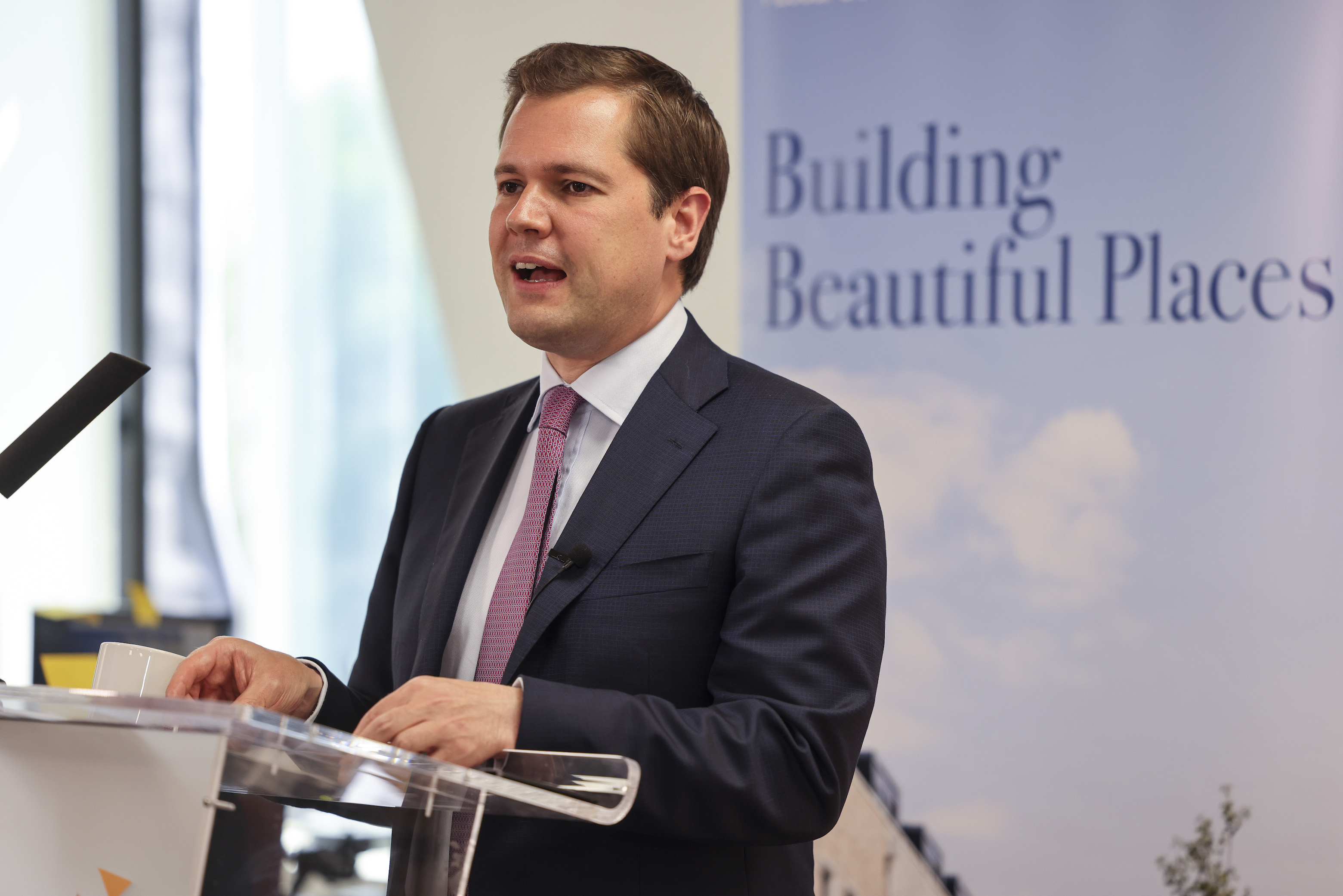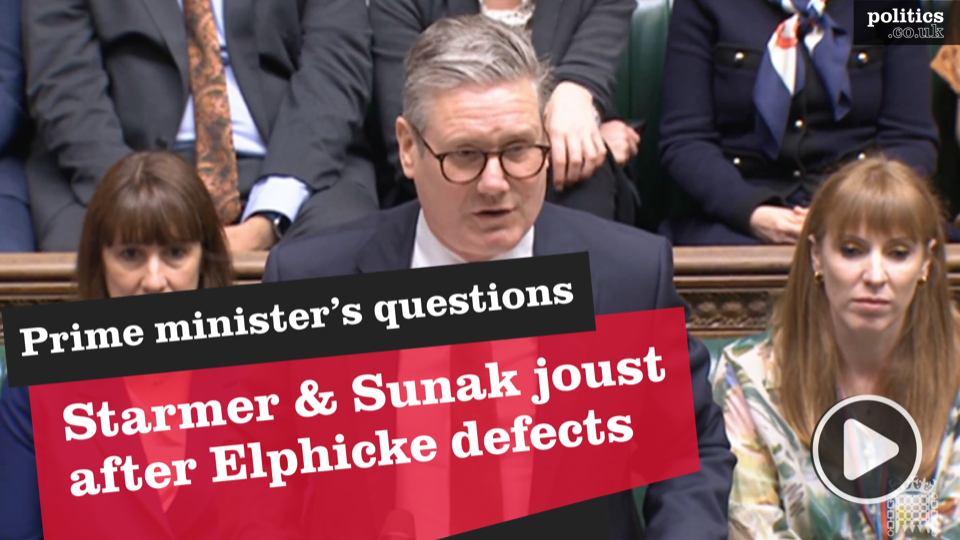Robert Jenrick entered parliament in 2014 after seeing off a challenge from UKIP in a by-election. In such contests, parties tend to pick the most generic, least troublesome candidates after rounds of rigorous vetting. Jenrick, the mild-mannered lawyer, was pointedly prototypical.
In parliament, Jenrick picked up the moniker “Robert Generic” as he climbed the greasy poll briskly if tediously. Somewhere along the way Mr Generic met Rishi Sunak, elected a year after him at the 2015 election; the two formed a close, and to this day enduring, political bond.
Then in 2019, Sunak and Jenrick formed two-thirds of the triumvirate that co-wrote an article for the Times backing Boris Johnson for the Conservative leadership. It was considered a watershed: the party up-and-comers were swinging in behind Bojo. Under Johnson, Jenrick became housing secretary, performing his cabinet duties with a quintessential lack of colour.
But no one could mindfully call Jenrick grey today; his “Robert Generic” sobriquet, on which he sought to curate a reputation for quiet competence, is consigned to history. In its place, his critics allege, has emerged the persona of a pantomime villain.


It comes following news that Jenrick, as immigration minister, ordered staff at an asylum seeker reception centre for children to black out Mickey Mouse and Winnie-the-Pooh murals. And that upon hearing staff refused to take down the murals, outside contractors were marched in on the minister’s orders.
The implication was that the murals were considered too welcoming. Former UKIP leader Nigel Farage was among the move’s many critics: “This measure is a bit mean”, he told the i newspaper.
Still, it is worth questioning what Jenrick was thinking in calling an end to the murals. First of all, it is impossible to claim — and ministers conspicuously do not — that plain walls might act as a deterrent to those intent on crossing the Channel on small boats. A Home Office minister, speaking in the Lords on Monday, instead insisted that detention facilities must “have the requisite decoration befitting their purpose”. Detention centres need to look like detention centres, was borders minister Lord Murray’s line.
But there is something far deeper at play here than Lord Murray’s mere insistence on utilitarian decoration. For such ostentatious displays of ministerial authority as Jenrick’s on Mickey Mouse and co. have an important “signalling” quality.
Robert Jenrick: minister for ‘vice signalling’
Since entering No 10 in October, Rishi Sunak has ensured that his government has adopted an unapologetically hardline attitude on “small boats” policy. It is no secret the PM wants to own this divisive issue — rubbishing the Labour party as weak in the process.
And, crucially, the mural row is not the first time Jenrick has prompted backlash as the face of the government’s hardline, and hardening, migration stance. In April, he controversially claimed that “excessive, uncontrolled migration threatens to cannibalise the compassion of the British public”. Speaking at a Policy Exchange event, he said: “those crossing tend to have completely different lifestyles and values to those in the UK — and tend to settle in already hyper-diverse areas, undermining the cultural cohesiveness that binds diverse groups together and makes our multi-ethnic democracy successful”.
In this way, Jenrick’s evolution from “Robert Generic” to verbal flame-thrower speaks both to the ideological requirements of his immigration brief and the political incentives Rishi Sunak’s government is following on the issue of “small boats”. It is, ironically, something of a performance art — whereby ministers signal their purported seriousness on an issue with uncompromising, sometimes cruel displays of political intent. The phenomenon has been termed “vice signalling”.
‘Robert Generic’s’ rapid demise
But Jenrick’s role in this is still curious. For at the time of his appointment, it was widely judged that Jenrick would be a moderating politician — a quietly competent counterweight to his boss and the home secretary, Suella Braverman.
Looking to stake his premiership on solving the small boasts crisis, the PM chose in October not to surrender the Home Office in its entirety to Braverman, a potential rival. Instead, Jenrick, a key ally, would take the post of immigration minister and front the ministry’s trickiest parliamentary and media assignments.
It would be a good cop-bad cop routine: Jenrick would do the heavy lifting in parliament and on policy, whereas Braverman would do the political signalling and performance — both to the Conservative right and to target voters. In turn, Jenrick’s very presence would undermine the ideological implications of Sunak and Braverman’s uneasy entente, formed via pact in the October leadership contest. Having backed Sunak for prime minister, Braverman might have looked forward to a semi-autonomous institutional power base in government. Jenrick was placed in a prime position to ensure differently.
Early on in Sunak’s premiership, Jenrick and Braverman’s good cop-bad cop dialectic appeared to be operating as predicted. In November 2022, after the home secretary came under fire for saying the UK is being “invaded” by small boast crossing, ministerial mollifier Jenrick was deployed to correct her. “In jobs like mine you have to choose words carefully, and I would never demonise people in search of a better life”, he affirmed. He qualified for his boss: “I think invasion is a way of describing the sheer scale of the challenge, that is what Suella Braverman was trying to express”.
Outbidding Braverman
It is therefore worth considering how Jenrick’s updated approach, in adopting increasingly authoritative stances on small boats, affects the political positioning of his ambitious boss. For it may now be the case that Sunak has decided the best way to neutralise the home secretary’s freelancing is to use Jenrick — again, a key ally — to outbid her on the politics of migration.
In all, it is clear the immigration minister no longer shies away from the discursive elements of his brief. In turn, it means Braverman can no longer be viewed as the government’s thought leader on migration. Her ability to steal headlines with hardline rhetoric on “invasions”, for example, is lost — and, in time, a potential resignation will be rendered far less politically potent.
Jenrick’s new Maverick streak, mandated by his ally, Rishi Sunak, therefore sums up the government’s new approach on “small boats”. Still, the reliance on performative politics, on “vice signalling” and on hardline rhetoric ultimately operate to disguise the fact that the PM has little recourse to act decisively on the issue.
So with the Rwanda deportation plan clogged up in the courts and the illegal migration bill set for “ping pong” between the Lords and the commons, the political incentives suggest Jenrick’s tilt to the right on migration policy will continue for some time.











